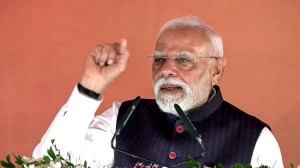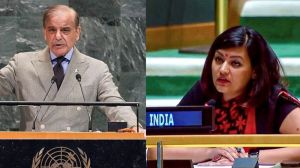Army’s tango with Fourth Estate
When I was commissioned in the army in the mid-50s, any discussion on the subject of the press was strictly forbidden in the officers' mes...

When I was commissioned in the army in the mid-50s, any discussion on the subject of the press was strictly forbidden in the officers’ mess. The TV, the news magazines and the Internet hadn’t made their appearance by then, and so we went about our business of training for war as and when it made its appearance. Much the same happened in the IAF and the Navy, and the soldiery was well-insulated from external influences and concerned only with protecting the borders of the country.
Yes, the 1962 debacle did take place some years thereafter, but then there the medals for the mess went squarely to a utopian Prime Minister who livedperpetually in a dreamland, a Defence Minister who started the politicisation of the army by selecting a Corps Commander who fought the battle of the Thagla Ridge from his sick bed in New Delhi, and a none too efficient civil intelligence chief who convinced his boss that the Chinese would never attack India.
Today, an aggressive Press has become king, and the emergence of television which brings instant fame and recognition to the top brass of the armed forces, has further queered the pitch. Some very funny things, unheard of in the army before, have taken place in recent years. An army chief post-Kargil, makes a political statement in America. A corps commander in the Valley busies himself with press interviews at the height of the Kargil war, and his subordinate, a Maj. Gen. stages a `Sindhu Darshan’ on the banks of the Indus river, utilising men and material from his mountain division for this semi-religious function.
Elsewhere, a serving general shares the stage with a Chief Minister at a public rally, to `celebrate’ the successful completion of the flood relief operations carried out by the army in the state, as if this was not a part of their routine duties. Serving officers are these days routinely seen to visit newspaper offices and request that their role in an IS operation, or for that matter even a wetland environmental project, is taken note of. And a former Chief of Naval Staff, had even begun to utilize the legal services of his spouse to fight his court cases. Senior army officers have gone to the press and other media, on whether a particular insurgency in the North-East will last or not, and the country is yet to live down a General’s statement who went live on TV from the Golden Temple during `Op. Bluestar’, praising the professional competence and efforts of his troops, against virtually next to no opposition.
The press and TV channels just love to see the serving brass talking. They need a story a day, and trade competition is tough. From the security point of view it is incorrect to have the serving brass making policy statements, and no amount of excuses like the need to have greater transparency in the Services, will wash. In my view, it is the job of the PRO of the Ministry of Defence to do all the talking, though it has to be also ensured at the same time that the armed forces get on with the job of training for and winning wars.
An unnecessary openness and fraternization with the fourth estate could lead to unhealthy polarization of the officers and a serious breach of security. Commanders have started vying more for a newspaper correspondent’s or TV anchor’s eye, than sweating it out in the field with their troops. The army is not a Corporation, and neither are the Generals managers or directors, who must display graphs and charts praising their daily work.
A good deal of convention and old time ethos, grassroots regimental soldiering, and a strict embargo on serving officers from interacting with the media, is the need of the hour. The race between the senior serving officers of having their story in at any cost only belittles their standing in the military and civilian circles.
The armed forces need to be seen and talked about the minimum, and their excessive exposure to the media will only corrode their image and invincibility, as the last saviours in the country. The dividing line between an army being political or apolitical is very thin, and it is time that the MOD carried out all the briefings themselves, and not leave it to the serving brass who in any case are otherwise operationally committed.





- 01
- 02
- 03
- 04
- 05


























